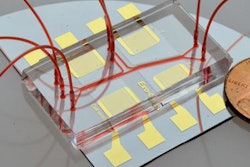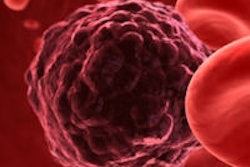Saliva collection and analysis can be as accurate as a tissue biopsy in detecting treatable cancer mutations, which may allow some cancers to be diagnosed earlier, according to a new study presented at the recent American Society of Clinical Oncology 2016 annual meeting.
Researchers at the University of California, Los Angeles (UCLA) School of Dentistry, along with researchers from Texas and China, collected tissue and saliva from 37 patients with non-small cell lung cancer at three cancer centers in Chengdu, China.
The researchers analyzed the saliva cells using a technology called electric field-induced release and measurement (EFIRM) liquid biopsy. They searched for early cellular signs of cancer called epidermal growth factor receptor (EGFR) mutations, specifically for epidermal growth factor receptor L858R and exon 19del. The goal was to determine if the same mutations could be found in saliva as in plasma cells.
Cancer mutations in all pre- and postsurgery saliva samples were predicted with 100% accuracy in the study, while the biopsied tissue revealed mutations with 70% accuracy, according to UCLA.



















